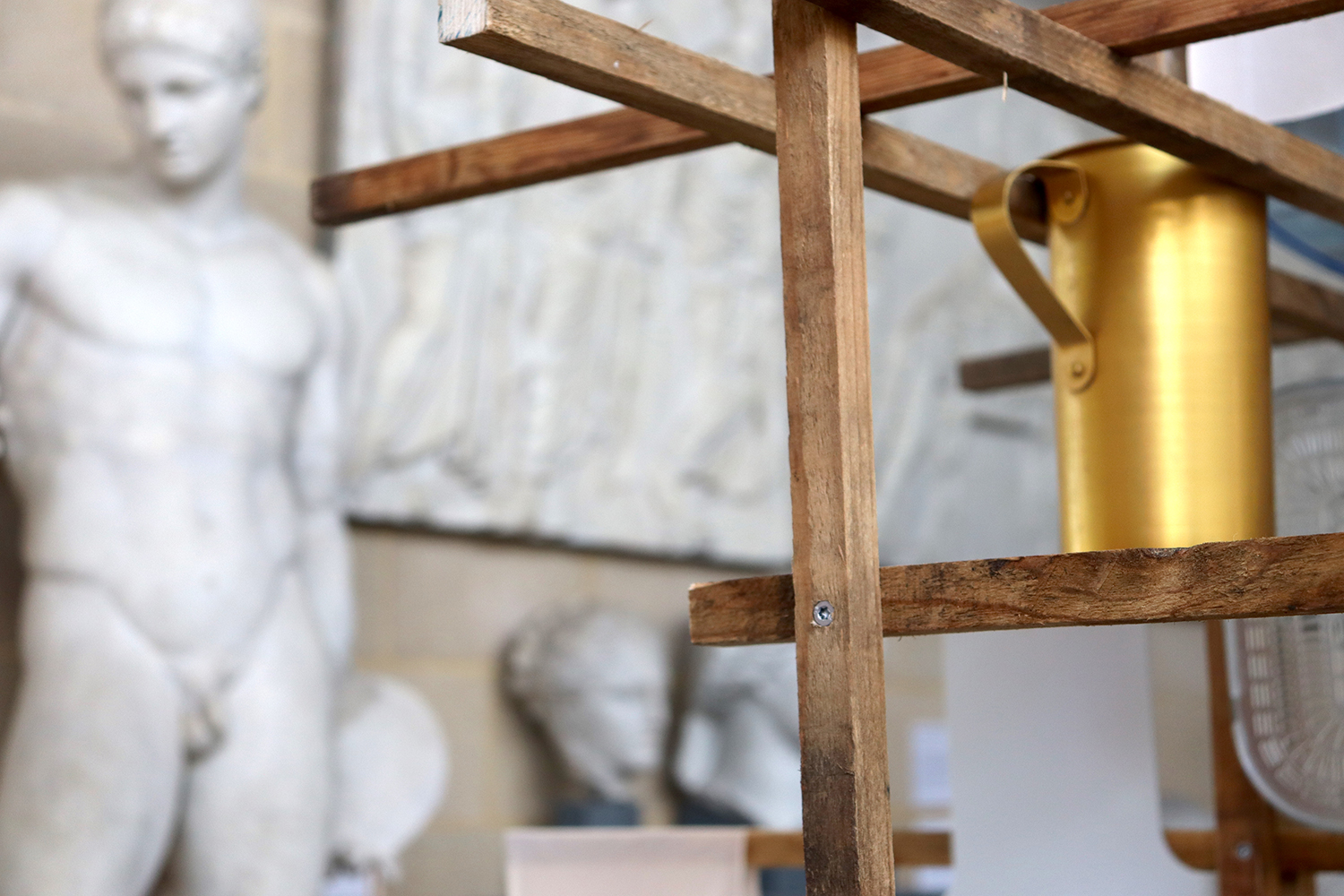Artist Kaitlin Ferguson has transformed the Clore Learning Studio into a creative research lab and would love for you to join her. You will learn new art techniques and skills and explore new ways of creative thinking in a safe and supported space.
Drop in anytime during the day to explore CoLAB and get stuck into a fun activity exploring ideas about accessibility and academic research in the city.
Activities are FREE and open to all
FREE, drop in
Join us in the Clore Learning Studio for the launch of CoLAB
FREE, everyone welcome, drop-in
About CoLAB
This event is part of our summer programme, CoLAB. CoLAB brings together our local community, an artist, and researchers at the University of Cambridge to think creatively and have fun. As a group, you will creatively explore and assist research that is currently underway at the University, and everyone is invited to join in.
About Howardena Pindell: A New Language
Howardena Pindell (b. 1943, Philadelphia) is a major contemporary artist based in the US. This is the first UK museum presentation of her work. Encompassing the poetic and the political, Pindell’s remarkable practice over six decades draws from her own experience as an artist, teacher and activist. Her compelling and beautiful works of art often respond to the social and political realities of our time, calling for urgent engagement and action.

We're extending our summer exhibition until Thursday 27 October 2022!
To celebrate the unveiling of a statue of Mary Anning in Lyme Regis this year, a scale model of the statue is touring the UK.
We are delighted to host the statue over July and August and highlight some of Mary's discoveries we have here in Cambridge.
In this beautifully considered exhibition, explore the inventive ways artists in the 18th and 19th centuries recorded fleeting moments in nature, capturing the effects of light, drama, and atmosphere first-hand in the open air.
Live stream talk.
The exhibition, developed from field studies carried out on the recently formed Icelandic island of Surtsey and the geologically ancient island of Barra in the Outer Hebrides focusses, amongst other things, on the impact of both human and natural forces on the two contrasting islands.
Live stream talk.
The exhibition, developed from field studies carried out on the recently formed Icelandic island of Surtsey and the geologically ancient island of Barra in the Outer Hebrides focusses, amongst other things, on the impact of both human and natural forces on the two contrasting islands.
Ai Weiwei: The Liberty of Doubt explores truth, authenticity and value, as well as globalisation, the coronavirus pandemic and current geopolitical crises.
Around 3,000 medicinal and aromatic plants are traded internationally, with the majority (60-90%) harvested directly from the wild. Most wild plants are harvested and traded with little consideration for sustainability or whether local harvesters are fairly paid or treated with dignity and respect for the products they produce.

